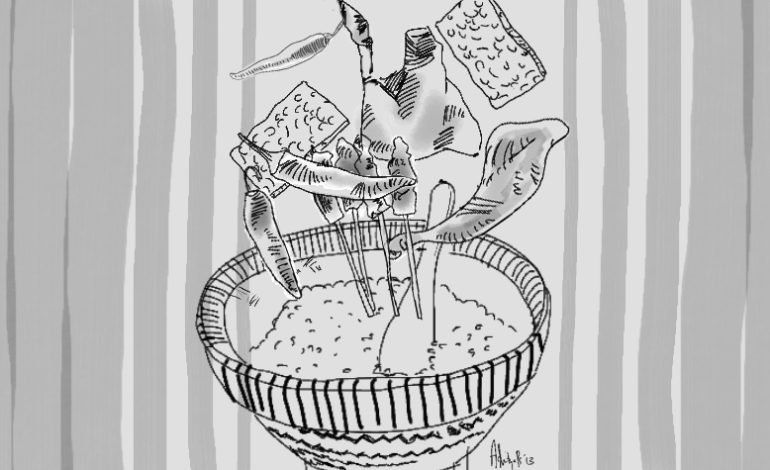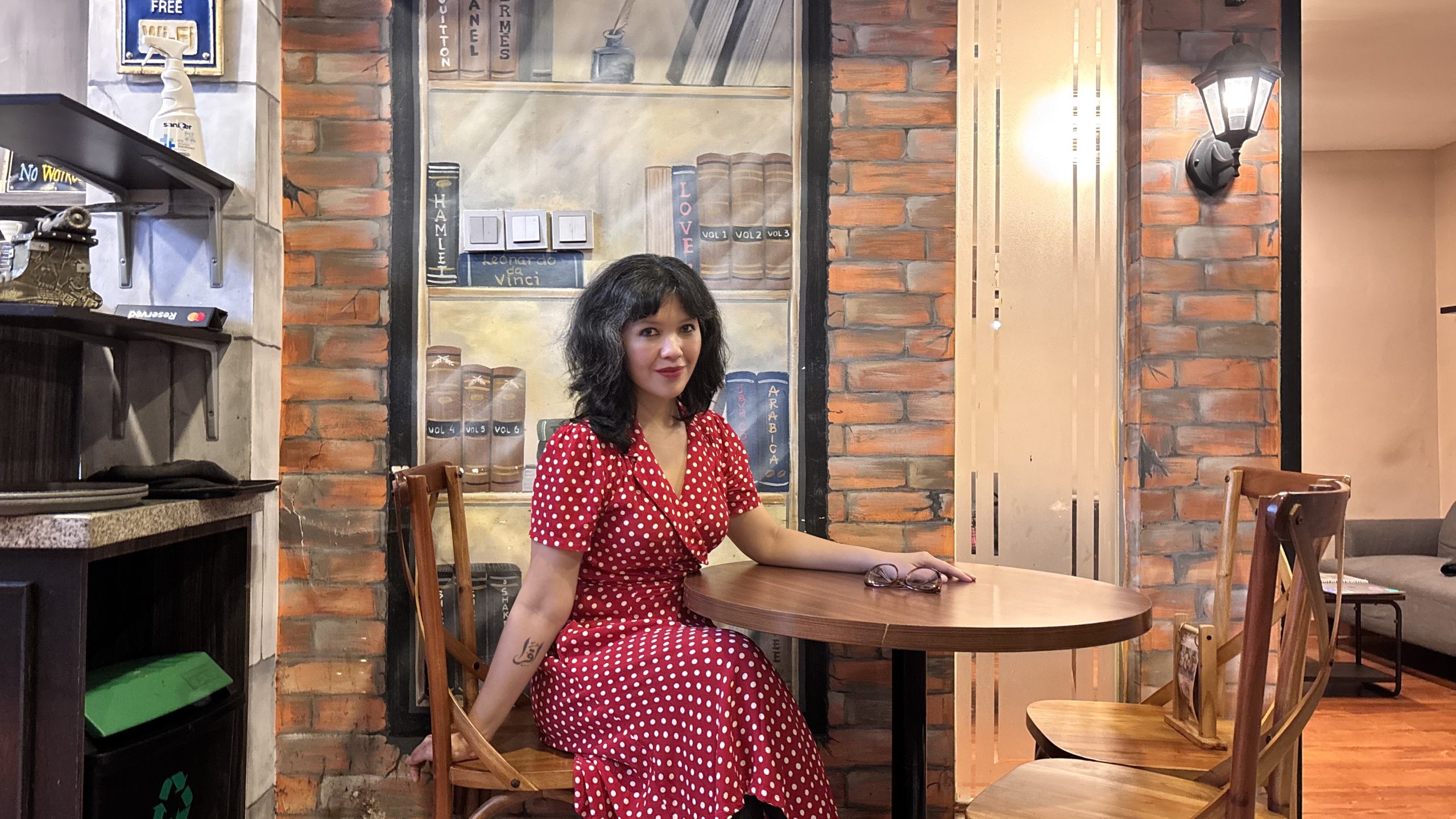Love Letter to Indonesian Food (and My MIL)

I wanted to learn how to cook Indonesian food as soon as I first tasted it over ten years ago. Four years ago I married an Indonesian man from North Sumatra, and gained a formidable mother-in-law at the same time. She is famous in the village for being an excellent cook, albeit one in possession of an infamous Batak temper. Patience is not her virtue.
Upon meeting her for the first time I ask how to cook some of the dishes she makes and am met with a look of confusion followed by a polite smile. I am a charlatan who is unsuccessfully trying to humour her. Under duress she writes a recipe on a piece of paper in tiny cursive script. For the sauce alone there are twenty-five ingredients. I know about three of them.
Desperate to learn I try a different approach and buy a recipe book in English. It doesn’t help. While I didn’t understand kunyit or lengkuas I equally don’t know what a “candlenut” is. To make things worse, some words that I have never heard of like “galangal” are the same in both languages. Indonesian cooking is unknowable.
But my husband and I crave the food of his home and not being able to conjure it at will is frustrating in the extreme. Like learning to drive and then having to take taxis everywhere. I download a recipe in English online and follow it minutely. My husband takes one bite of the ayam sambal I have painstakingly prepared and vomits loudly in the toilet. This is an insurmountable challenge and one that I resign myself to never mastering. I realise now why my mother-in-law has so much confidence, so much presence. Why she guards her kitchen so fiercely. She can do things that not everyone can do. She is in possession of secrets I crave to uncover.
My mother-in-law is cooking a big feast for the Muslim holiday of Eid Al Adha. As usual I have turned up in the kitchen to volunteer to help and have been distractedly waved away. Later I wander in again. On the floor sits my sister-in-law, peeling carrots.
My MIL is doing ten things at once, a sorceress with a hundred pots, herbs and spices. There is billowing steam, boiling cauldrons. The smell is incredible, the air heavy. She spots my intrusion.
“Come here!” she barks.
Dutifully I shuffle over, anticipating a telling off. She turns to my sister-in-law.
“Get up! You’re too slow.”
“You wanted to help. Peel these carrots.”
I’m in.
My sister-in-law looks relieved and scuttles off as I squat on the floor with a rusty peeler and a bowl of knobbly carrots.
“And hurry up.” I need not be told twice.
“Chop them.”
I bang the hell out of the carrots. They are snatched out of my hands, a cursory glance, then thrown into a bubbling pot.
“The potatoes the same. Now the celery leaves.”
She wants me to do more. I have graduated from carrots to potatoes. I have not been thrown out yet. I keep chopping.
A vat of rendang is bubbling wildly and my other sister-in-law is brought in to stir it.
“Now taste it.”
She sips the sauce.
“It’s fine.”
My MIL turns to me, now finished with the vegetables and fiddling about and pretending to wash up even though there is no water and after four years I still haven’t worked out why sometimes when I turn the water pump on, water comes out and sometimes it doesn’t.
“Is it fine?”
I bring a spoonful of molten sauce to my lips.
“No.”
My sister-in-law looks aghast. My mother-in-law smiles, her eyes narrowing,
“So, what’s wrong with it?”
I may be English, but beef rendang is one of the first Indonesian dishes I ever tasted, and I would gladly bathe in it once a day given the chance.
“It’s too sweet.”
“So what does it need?”
“More salt.”
She turns to my sister-in-law: “She’s right. Why did you say it was fine?”
“Well…it tasted…,” she shrugs.
“Go away!”
I am beckoned towards a pot of soup, the colour of dirty sand. Bones from the vertebrae of a cow float to the top, bumping against pillows of lung. Having lived in Indonesia for some time, I have developed a deep love of offal, with lung soup being an unexpected favourite.
“Taste.”
I close my eyes. Cloves and star anise, sweaty fat and bone marrow. It should be slightly bitterer.
“White pepper?” White pepper is produced and added.
I have now become the official taster for the feast. It is one of the proudest moments of my life. I don’t always get it right, or I know what is wrong, but not how to correct it. “It’s too sour”, “not sweet enough”, “needs more seasoning”.
We cook all afternoon. I taste and taste. Inhale the pungent steam from the pots. Crush ingredients between my fingertips. Nibble tiny bites of raw ingredients. I forget learning names and focus instead on committing all of these dishes to memory. I try to remember each ingredient and the dish it is used in. I understand the magic of cooking for your family. In Indonesia food is power. Food is love. I feel as if someone has just taught me to fly.
We eat together that night. And share not only the food but also the experience of making it. When we are finished my mother-in-law leans over to me,
“When you get back to Medan, go to the market and point to the things you need. Eventualy you will remember the names. Cook them as you did today. Forget timings and forget lists. You cook it until it is done or until it tastes right. Change it if it’s wrong. Taste until it is perfect. You don’t need me to write it down. You understand?”
Yes. I finally understand now.
Aisyah Llewellyn is a former materials writer and consular officer who has lived in and studied Indonesia for over 10 years. Find @BRITgrlINDOfood on Twitter.






















